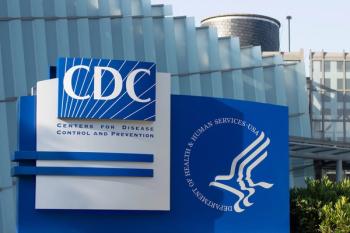
High-Dose Influenza Vaccine Study Rationale, Objectives, and Methods
Jason Lee, M.S., Ph.D.(c), discusses the rationale, objectives, and methods for a study of the efficacy and effectiveness of a high-dose influenza vaccine in older adults.
Episodes in this series

Jason Lee, M.S., Ph.D.(c): We performed our study to understand the efficacy and effectiveness of influenza vaccines in preventing a range of clinical outcomes. Having this type of understanding is critical for designing optimal vaccination programs that control the burden of influenza in older adults. Systematic reviews and meta-analyses can help guide evidence-based decision-making by providing the best available data on the use of influenza vaccines and their effectiveness. The overall objective of our study was to synthesize the available evidence on the efficacy and effectiveness of the high-dose influenza vaccine compared with the standard-dose vaccine in preventing clinical outcomes that are typically associated with influenza. Dr. Russell, maybe you can provide a couple of words on how evidence-based decision-making helps guide you in your clinical practice.
John J. Russell, M.D.: Those of us in practice base so much of what we do on evidence. We don’t have evidence for everything, so sometimes we have to use our best experiences. Early in the COVID-19 pandemic, we were trying to use our best guesses until some evidence trickled in. I’m excited to talk about this 10-year study, a meta-analysis looking at this clinical question: Should I be giving my patients over the age of 65 a vaccine targeted for them?
Jason Lee, M.S., Ph.D.(c): Great. For our study, we first conducted a systematic review of the literature to find all the randomized and observational studies that looked at the efficacy or effectiveness of the high-dose influenza vaccine against clinical outcomes in adults aged 65 years and older. The figure here shows the process by which we did that. We looked through four different databases and identified over 1,000 publications that were possibly related. After removing duplicate records and screening the titles of abstracts as well as the full text, we ended up with 18 publications that were deemed eligible for our meta-analysis. We further removed three of them due to duplicate analyses that were based on similar data sets, and for not meeting the criteria for our case definition. In the end, we included 15 publications in our meta-analysis.
John J. Russell, M.D.: Jason, I’m very interested in which studies got included and which ones got left out. I’m looking forward to this because it included the population we’re going to care about.
Jason Lee, M.S., Ph.D.(c): Definitely. We were generally quite broad in terms of our inclusion criteria. The studies that we eliminated were mostly those that didn’t use the appropriate vaccine or didn’t report the outcomes that we were looking for. For instance, we didn’t include studies that only looked at immunogenicity end points, and very specific immunocompromised populations like those with organ transplants and HIV [human immunodeficiency virus].
The next few slides will summarize the studies that we ended up identifying and including in our meta-analysis. This first table shows the four randomized studies that were included. The first two Carlos Diazgranados, M.D., studies were randomized controlled studies that included almost 40,000 participants and were used to support the licensure and registration of the high-dose influenza vaccine and looked at a range of different clinical outcomes. The other two by Stefan Gravenstein, M.D., were a series of pragmatic cluster randomized controlled studies that looked at the efficacy of the high-dose influenza vaccine in the nursing home population in particular. In the second study, there were almost 50,000 subjects included. It was a fairly large study looking at the nursing home population.
The next group of studies were observational studies. The ones shown in the table are all studies that analyzed Medicare data, looking specifically at beneficiaries over the age of 65 years. All these studies were incredibly large with huge sample sizes. The Yun Lu, Ph.D., study in particular looked at six years of data and included 13.7 million high-dose vaccine recipients and compared it with 6 million standard-dose vaccine recipients. One of the benefits of looking at Medicare data is that it has such a large data set that allows you to evaluate a range of clinical outcomes as well.
The remaining observational studies were performed in other populations in the United States. The first four were performed in the Veterans Health Administration looking at the VA [United States Department of Veterans Affairs] data. Then the other two were smaller observational studies, one that was performed using the CDC [Centers for Disease Control and Prevention] HAIVEN [Hospitalized Adult Influenza Vaccine Effectiveness Network], and a relatively small one that was looking at local data from Portland, Oregon.
Transcript edited for clarity
Newsletter
Stay informed and empowered with Medical Economics enewsletter, delivering expert insights, financial strategies, practice management tips and technology trends — tailored for today’s physicians.







